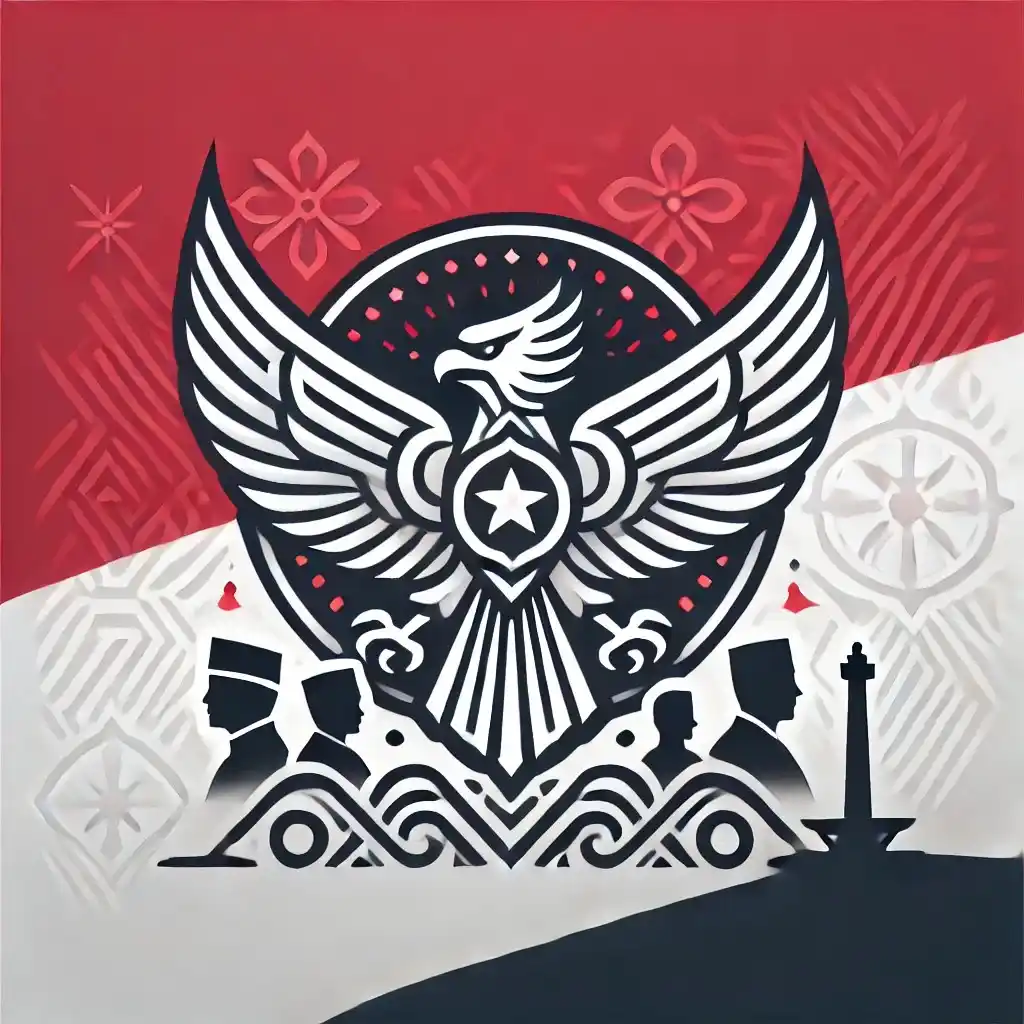#GMI-POETRY – GOOD MORNING INDONESIA WITH POETRY
New World Encyclopedia:
Beginning in the fourteenth century, Minangkabau people settled outside West Sumatra, spreading their influence to Java, Sulawesi, the Malay peninsula, Thailand, Brunei, and the Philippines. Raja Bagindo migrated to the south Philippines and founded the Sultanate of Sulu in 1390. In the eighteenth century, Raja Melewar was appointed the first head of state of Negeri Sembilan. Minangkabau ulama (learned men of Islam) taught Islam in Sulawesi, Borneo, and Nusa Tenggara island.
The Minangkabau tradition of actively pursuing education has resulted in Minangkabau people reaching a prominence out of proportion to their small numbers in Indonesia. Many Minangkabau are politicians, writers, ulama, scientists, film producers, and businessmen. In the special Millenia edition of Tempo magazine (2000) , six of the top ten influential Indonesians of the twentieth century were Minangkabau.
Many Minangkabau people held prominent positions in the Indonesian and Malay nationalist movements. From 1920 to 1960, political leadership in Indonesia was dominated by Minangkabau such as Mohammad Hatta, a former Indonesian Prime Minister, and Vice President; Muhammad Yamin, a former Indonesian government minister; Tan Malaka, an international communist leader and a founder of PARI and Murba; Indonesian diplomat Agus Salim, a former Indonesian government minister; Sutan Sjahrir, a former Indonesian Prime Minister and a founder of the Socialist Party of Indonesia; and Muhammad Natsir, a former Indonesian Prime Minister and a leader of Masyumi, a major Islamic political party. Rasuna Said, an Indonesian nationalist political leader, became the first female minister in the Indonesian government.
Minangkabau writers Marah Roesli, Abdul Muis, Sutan Takdir Alisjahbana, Idrus, and Hamka, and poets Muhammad Yamin, Chairil Anwar, and Taufik Ismail have made significant contributions to modern Indonesian literature.
During the sixteenth century, Minangkabau traders were active in the medieval Malay kingdom, traveling to Aceh, Kedah, Siak, Johor, and Malacca. Today, Minangkabau businessmen are prominent in the restaurant, media, healthcare, and textile industries.
People of Minangkabau descent who made significant contributions outside of Indonesia include Yusof bin Ishak, the first President of Singapore; Zubir Said, composer of the national anthem of Singapore, Majulah Singapura; Tan Sri Abdul Samad Idris, a former Malaysian Minister of Sports and Culture during the 1970s, who was also a historian of the Minang culture and a leader of the Malaysian independence movement; and World War II hero Lieutenant Adnan Bin Saidi.
#The original documents were given to GMI-Poetry by D. Ramali himself.e would love to interview or talk to anyone because we believe that everyone has an interesting story to tell and to share, as Bill Clinton once said: “Everyone has an interesting story”
Therefore, please share your experiences with us and at the end of the interview you can recite poetry in any language you choose, or if you want to recite in your own mother tongue language please do, but then you have to explain briefly in English what is all about. If you are a musician you could also play or sing with your musical instruments.
D. Ramali himself gave the original documents ‘Sejarah Perjuangan Kemerdekaan Republik Indonesia Di Minangkabau 1945 – 1950’ to GMI-Poetry.
Camera Person: Ruby Alimin
Sandringham

